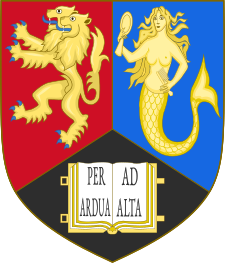Request Demo
Last update 08 May 2025
CLEC14A
Last update 08 May 2025
Basic Info
Synonyms C-type lectin domain containing 14A, C-type lectin domain family 14 member A, C14orf27 + [4] |
Introduction- |
Related
3
Drugs associated with CLEC14ATarget |
Mechanism CLEC14A inhibitors |
Active Org. |
Originator Org. |
Active Indication |
Drug Highest PhasePreclinical |
First Approval Ctry. / Loc.- |
First Approval Date20 Jan 1800 |
Target |
Mechanism CLEC14A inhibitors |
Active Org.- |
Originator Org. |
Active Indication- |
Inactive Indication |
Drug Highest PhasePending |
First Approval Ctry. / Loc.- |
First Approval Date20 Jan 1800 |
Target |
Mechanism CLEC14A inhibitors |
Active Org.- |
Originator Org. |
Active Indication- |
Inactive Indication |
Drug Highest PhasePending |
First Approval Ctry. / Loc.- |
First Approval Date20 Jan 1800 |
100 Clinical Results associated with CLEC14A
Login to view more data
100 Translational Medicine associated with CLEC14A
Login to view more data
0 Patents (Medical) associated with CLEC14A
Login to view more data
49
Literatures (Medical) associated with CLEC14A01 Dec 2024·Arteriosclerosis, Thrombosis, & Vascular Biology
Single-Cell Meta-Analysis Uncovers the Pancreatic Endothelial Cell Transcriptomic Signature and Reveals a Key Role for NKX2-3 in PLVAP Expression
Article
Author: Khan, Safwat T. ; Cleaver, Ondine ; Vohra, Shabana ; Taïb, Sonia ; Ahuja, Neha ; Nunes, Sara S.
01 Dec 2024·Life Sciences
CLEC14A facilitates angiogenesis and alleviates inflammation in diabetic wound healing
Article
Author: Wu, Na ; Liao, Yan ; Guo, Li ; Yang, Deqin
01 May 2024·Angiogenesis
Group XIV C-type lectins: emerging targets in tumor angiogenesis
Review
Author: Sun, Yi ; Vigil, Isaac ; Schulick, Richard D ; Torphy, Robert J ; Zhu, Yuwen ; Yee, Elliott J
Analysis
Perform a panoramic analysis of this field.
login
or

AI Agents Built for Biopharma Breakthroughs
Accelerate discovery. Empower decisions. Transform outcomes.
Get started for free today!
Accelerate Strategic R&D decision making with Synapse, PatSnap’s AI-powered Connected Innovation Intelligence Platform Built for Life Sciences Professionals.
Start your data trial now!
Synapse data is also accessible to external entities via APIs or data packages. Empower better decisions with the latest in pharmaceutical intelligence.
Bio
Bio Sequences Search & Analysis
Sign up for free
Chemical
Chemical Structures Search & Analysis
Sign up for free

